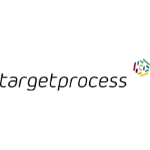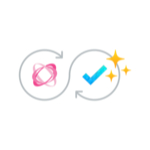List of Best Product Management Software
Showing 10 of 44 productsZoho Projects software is a tool that allows you to efficiently manage all your tasks and projects in one central location, from small day-to-day tasks to larger, more complex projects. This powerful Zoho Projects software is the perfect solution for...Read Zoho Projects Reviews
Project Insight is a project management software that streamlines processes and enhances collaboration between teams. Designed to meet the diverse needs of businesses, it offers a user-friendly interface and a wide range of features to efficiently ma...Read Project Insight Reviews
Apptio Targetprocess is a software that streamlines project management and budgeting for modern businesses. Offering a user-friendly interface features, this software is designed to help companies of all sizes make data-driven decisions and deliver s...Read Apptio Targetprocess Reviews
Wrike is a project management software designed to help teams collaborate, organize, and achieve their goals efficiently. With its user-friendly interface and powerful features, Wrike simplifies the project management process for businesses of all si...Read Wrike Reviews
Confluence is a collaboration and knowledge management software designed to streamline teamwork and improve productivity in the workplace. Developed by Atlassian, it provides a centralized platform for teams to create, organize, and share ideas, docu...Read Confluence Reviews
Workfront, an innovative project management software dedicated to streamlining your workflow and increasing productivity. With its user-friendly interface features, Workfront allows for efficient team collaboration and better project management. Say...Read Workfront Reviews
MeisterTask is a project management tool for individuals and teams. With its intuitive interface and powerful features, MeisterTask simplifies the way you work, collaborate, and accomplish tasks. Say goodbye to complicated project management and hell...Read MeisterTask Reviews
Hygger is a project management tool designed to streamline processes, boost productivity and drive success for businesses of all sizes. With its user-friendly interface and powerful features, Hygger is changing the game in project management, helping...Read Hygger Reviews
productboard is a powerful, feature-rich solution designed to streamline product management and development processes. With its intuitive interface and robust set of tools, productboard empowers teams to efficiently gather and prioritize feedback, co...Read productboard Reviews
Chisel is a tool for modern web design. This innovative software offers a sleek user interface, allowing you to effortlessly create stunning websites in no time. With its advanced features and streamlined workflow, Chisel is a must-have for any web d...Read Chisel Reviews
- What Is Product Management Software?
- Top Reasons Why Businesses Need Product Management Software?
- What Are the Top Key Features of Product Management Software?
- What Are the Top Benefits of Product Management Software?
- What Are the Steps to Choose the Right Product Management Software?
- What Are the Types of Product Management Software for Different Industries?
- What Are the Technology Trends for Best Product Management Software?
- What Are the Deployment Options for Product Management Software?
What Is Product Management Software?
Product management software is a software application utilized by product managers to facilitate the management and strategic planning of diverse facets pertaining to the creation of products. The utilization of this approach facilitates the systematic arrangement and harmonization of the complete product development procedure.
This includes various aspects such as the management of ideas, planning and monitoring of projects, collection of requirements, administration of tasks, conducting quality assurance testing, determining product features, overseeing release management, and implementing iterative feedback mechanisms.
The utilization of the product management system facilitates the coordination of work among many stakeholders within product teams, allowing for the optimization of resources and the prioritization of the product's objectives. Moreover, the software also aids in the identification of client needs and the monitoring of performance in order to ensure the success of the product.
Product management software facilitates the proactive identification of client requirements and the provision of optimal products or services to meet those demands. Additionally, it facilitates seamless collaboration with various teams and stakeholders, hence guaranteeing a streamlined product path and enhanced customer experience.
Product management tool facilitates the seamless planning and monitoring of a product's trajectory, encompassing its inception, development, and subsequent release, among other stages.
Top Reasons Why Businesses Need Product Management Software?
1. One potential approach to enhance the efficiency of the product development process involves the establishment of a centralized system for the management of product development tasks.
2. Effectively managing client recommendations and comments in order to enhance the prioritization of product development endeavors.
3. One of the key responsibilities is to effectively coordinate product teams and stakeholders in order to meet the deadlines for product development.
4. The monitoring of product progress and performance in order to inform decision-making based on empirical evidence.
5. The implementation of automation techniques to streamline operations and processes, hence reducing the need for manual intervention and minimizing the occurrence of errors.
6. Enabling product teams to tailor and expand the product management system according to their own requirements.
7. Enabling and promoting collaboration across product teams, customers, and partners across all stages of the product lifecycle management.
8. One potential approach to enhance efficiency in the identification and resolution of product bugs is through the implementation of automated systems. By automating the process of tracking and resolving bugs, organizations can expedite the detection and rectification of faults.
9. The process of examining customer and market data in order to ascertain the alignment of product offerings with customer requirements management.
10. The process of monitoring and measuring key performance indicators (KPIs) is essential for optimizing product performance.
11. The formulation of feature roadmaps to provide guidance for product development and decision-making processes.
12. Employing integrated analytics to discern patterns and enhance product efficacy.
13. The provision of comprehensive reports pertaining to product metrics and key performance indicators.
14. The process of aggregating data from several sources and presenting it in a unified and practical display.
15. Enabling expedient and effortless access to product data and insights for product managers.
What Are the Top Key Features of Product Management Software?
Top Key Features of Product Management Software include:
1. Product Roadmap: The capacity to generate and monitor goals, deliverables, and key performance indicators (KPIs) within a visual timeline.
2. Requirements Management: The capacity to generate, oversee, and observe the interconnectedness of specifications that delineate a product.
3. Workflow Automation: The implementation of automated systems in the product lifecycle facilitates the customization of the product development process.
4. Collaboration: Enables managers and stakeholders to engage in synchronous collaboration, irrespective of their geographical dispersion, by utilizing chat functionalities, facilitating file exchange, and facilitating the scheduling of meetings.
5. Advanced Reporting: The capacity to provide robust reports based on product data, encompassing analyses of sales, customer trends, and other relevant factors.
6. Release Management: The capacity to monitor the advancement and condition of every iteration, spanning from the initial prototype to the ultimate product launch.
7. Customization: The capacity to customize software to align with one's product management process, achieved through the modification of templates, permissions, and security settings.
8. Integration: The facilitation of integration with various tools and systems is crucial in order to optimize the efficiency and visibility of product development.
9. Accessibility: The capability to access the product management system from many devices, including laptops, tablets, and smartphones.
10. Analytics: The capacity to examine customer trends, product performance, usage patterns, and various data in order to enhance decision-making processes.
What Are the Top Benefits of Product Management Software?
1. Increased Efficiency: Product management software enables organizations to effectively manage the many stages of product lifecycle, encompassing ideation, development, and implementation, hence enhancing operational efficiency. This facilitates the process of strategizing product releases, monitoring progress, and enhancing operational efficiency.
2. Improved Collaboration: Product management tool provides organizations with a convenient means of facilitating collaboration among various departments and individuals. This platform offers a range of functionalities, such as project management, task allocation, and dispersed collaboration, which facilitate collective engagement in a shared project.
3. Easier Tracking: A product management system facilitates convenient access to several types of data pertaining to the development, launch, and maintenance of a product, including project and product performance metrics, feature requests, and problem reports.
4. Improved Resource Allocation: The utilization and reallocation of resources can be facilitated by the use of product management tool.
5. Enhanced Decision-Making: The best product management software has the capability to visually represent data, hence facilitating the process of making informed and improved decisions. Additionally, it offers comprehensive data that can be utilized to inform product strategy.
6. Proactive Planning: Product management system facilitates the ongoing process of planning and adapting product strategies in order to maximize outcomes.
7. Increased Visibility: Product management software serves as a centralized platform that consolidates and presents accurate and up-to-date information regarding the progress and performance of a product. This facilitates effective communication and coordination among team members, ensuring that everyone is consistently aligned and well-informed.
What Are the Steps to Choose the Right Product Management Software?
1. Define Your Needs: Prior to making a determination regarding the appropriate product management software, it is imperative to ascertain one's individual requirements. What are the necessary instruments for efficient product management? What characteristics might confer advantages?
2. Research Software Options: After determining the necessary requirements, commence the process of conducting research on several alternatives that possess such features. It is vital to thoroughly peruse evaluations and do a comprehensive comparative analysis of available possibilities.
3. Consider Cost: The consideration of cost plays a significant role in the decision-making process for selecting a product management tool. It is advisable to carefully evaluate one's financial resources management and engage in a thorough exploration of many alternatives before making a purchase.
4. Consider Flexibility: Take into consideration the level of flexibility that the solution offers in terms of customizations and integrations. Is your team capable of customizing the software according to their requirements, or will they be required to through a costly installation procedure?
5. Test & Trial: Conducting a thorough evaluation of the program prior to making a purchase is of utmost significance. Utilize the complimentary trial periods provided by software vendors in order to ascertain its compatibility with your requirements.
6. Check Scalability: When seeking a product management system for long-term use, it is essential to carefully evaluate its scalability.
Inquire with the vendor regarding the scalability of the best product management software under consideration, specifically in terms of accommodating future growth and effectively managing an expanding user base, increasing project volumes, job loads, and additional features over an extended period.
7. Look for Support: It is imperative to ascertain the extent of available help. Does the company provide customer service or a dedicated team to assist with troubleshooting any issues that may arise?
8. Make the Final Decision: After conducting thorough research, rigorous testing, and careful consideration of all pertinent elements, the moment has come to arrive at a definitive conclusion. Select the product management tool that aligns with both your specific requirements and financial constraints.
What Are the Types of Product Management Software for Different Industries?
1. Retail and E-commerce Product Management Software: This particular program is specifically developed to assist retailers and e-commerce enterprises in effectively managing many aspects such as product data, price, promotions, inventory, and client orders. Its primary objective is to optimize sales and enhance profitability.
2. Manufacturing Product Management System: This program is specifically developed to assist manufacturers in effectively managing the entire lifetime of their products, encompassing various stages such as design, delivery, product data management, costing, inventory management, and production scheduling.
3. Healthcare Product Management Tool: This particular program has been specifically developed to optimize the management of product data, inventory, medical records, and medical billing, all while guaranteeing adherence to health rules and industry norms.
4. Financial Product Management Software: This particular program has been specifically developed to assist financial institutions in effectively managing their range of products, monitoring their performance, and maximizing their profitability.
5. Engineering Product Management System: This particular program is specifically developed to assist engineers in effectively overseeing the many stages of product design, production, and testing. It achieves this by granting engineers access to crucial product data, engineering drawings, and test results.
What Are the Technology Trends for Best Product Management Software?
There exist several technology trends within the best product management software. In contemporary times, there is a growing trend among software solutions to place greater focus on automation as a means to achieve efficient operations across the product management process.
Through the utilization of automation, organizations have the ability to optimize several operational aspects, including but not limited to product design, inventory management, and product customization.
Furthermore, a considerable number of solutions are adopting cloud-first technologies to facilitate collaboration across geographically dispersed teams and enhance scalability and adaptability. In recent times, there has been a notable emphasis within product management tool on the capacity to gather and evaluate comprehensive data analysis.
This emphasis aims to enhance comprehension of customer behavior and preferences, as well as to identify future possibilities and challenges in the market.
What Are the Deployment Options for Product Management Software?
The available deployment choices for Product Management program are contingent upon the specific program being considered, but typically align with one of the subsequent categories:
1. On-premise: In this option, The program is installed and maintained within the internal servers of the business, and it can be accessed through the local network. The organization has the responsibility for maintaining the software and performing any required system configurations.
2. Cloud-hosted: This alternative involves the remote hosting of the product management tool, allowing users to access it via the Internet. The hosting provider assumes responsibility for maintenance and system setups, hence facilitating a streamlined setup process.
3. Software as a Service (SaaS): This phenomenon is well recognized as Software as a Service (SaaS), wherein the software is distributed in bundles and is hosted on the cloud infrastructure of the service provider. Organizations simply engage in subscribing to the software packages and initiate their utilization.
The aforementioned strategy is considered to be highly cost-effective, as it eliminates the need for enterprises to allocate resources towards hardware acquisition and installation.
4. Hybrid: This approach entails a hybrid deployment strategy that incorporates both on-premise and cloud-hosted approaches. on this configuration, certain components of the system are maintained locally on the premises, while others are remotely handled on the cloud.










